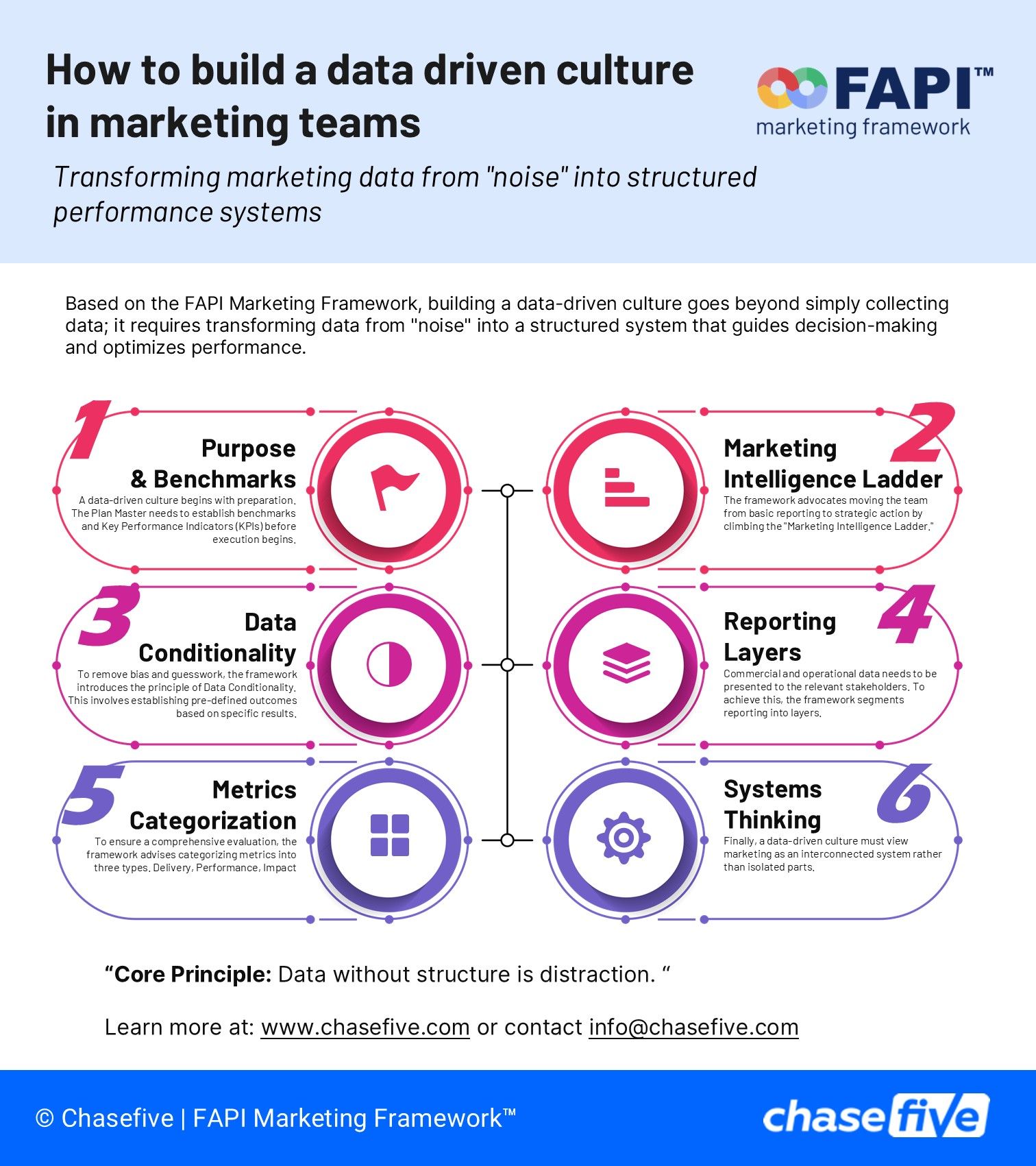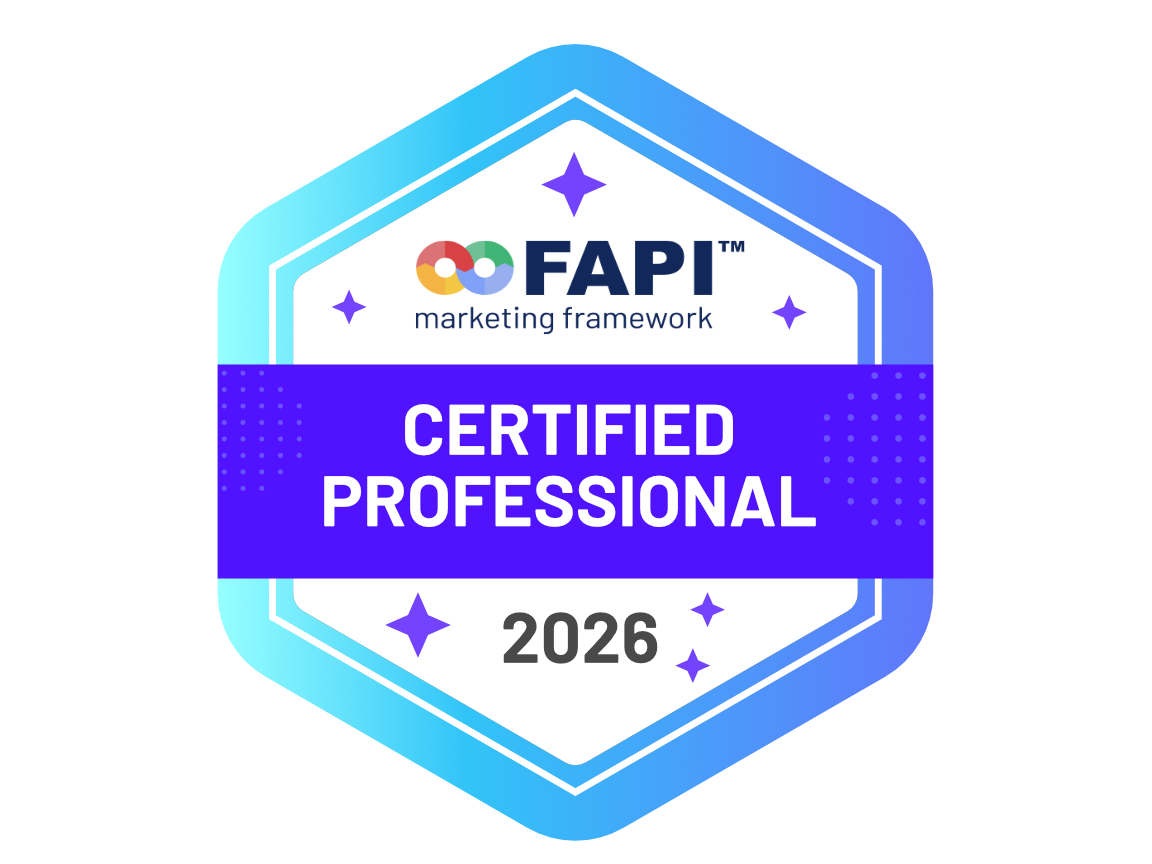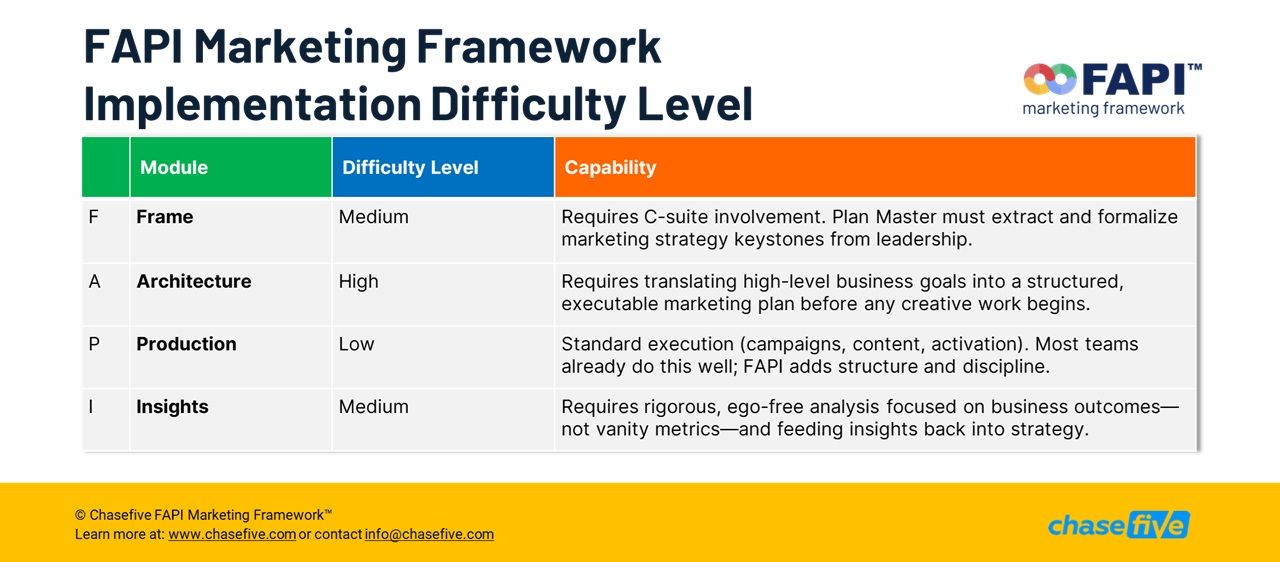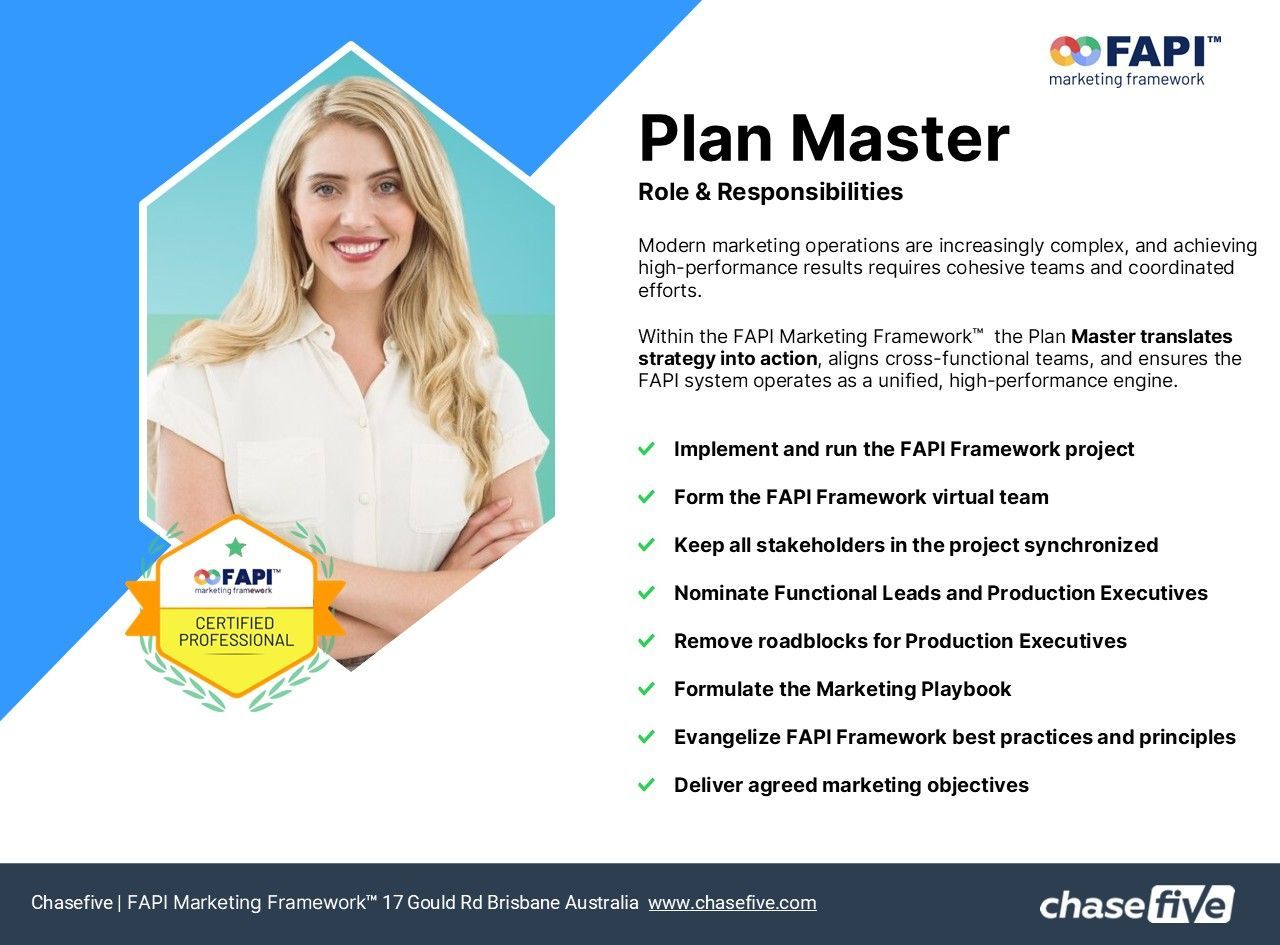The 8 Marketing Professional Types: Aligning Skills and Personality in Marketing Resources Planning
In today’s dynamic marketing environment, success isn’t just about having a well-designed strategy—it’s about having the right team to execute that strategy effectively. A critical part of building that team is not only focusing on skill sets but also on the personality types that complement different marketing functions.
Each type of marketing professional brings a unique behavioral and personality-driven approach, which directly influences how they contribute to the success of the team and overall business objectives. This is where the
Architecture Module in the FAPI Marketing Framework becomes essential, offering a clear path to
marketing resource planning that goes beyond technical skills.
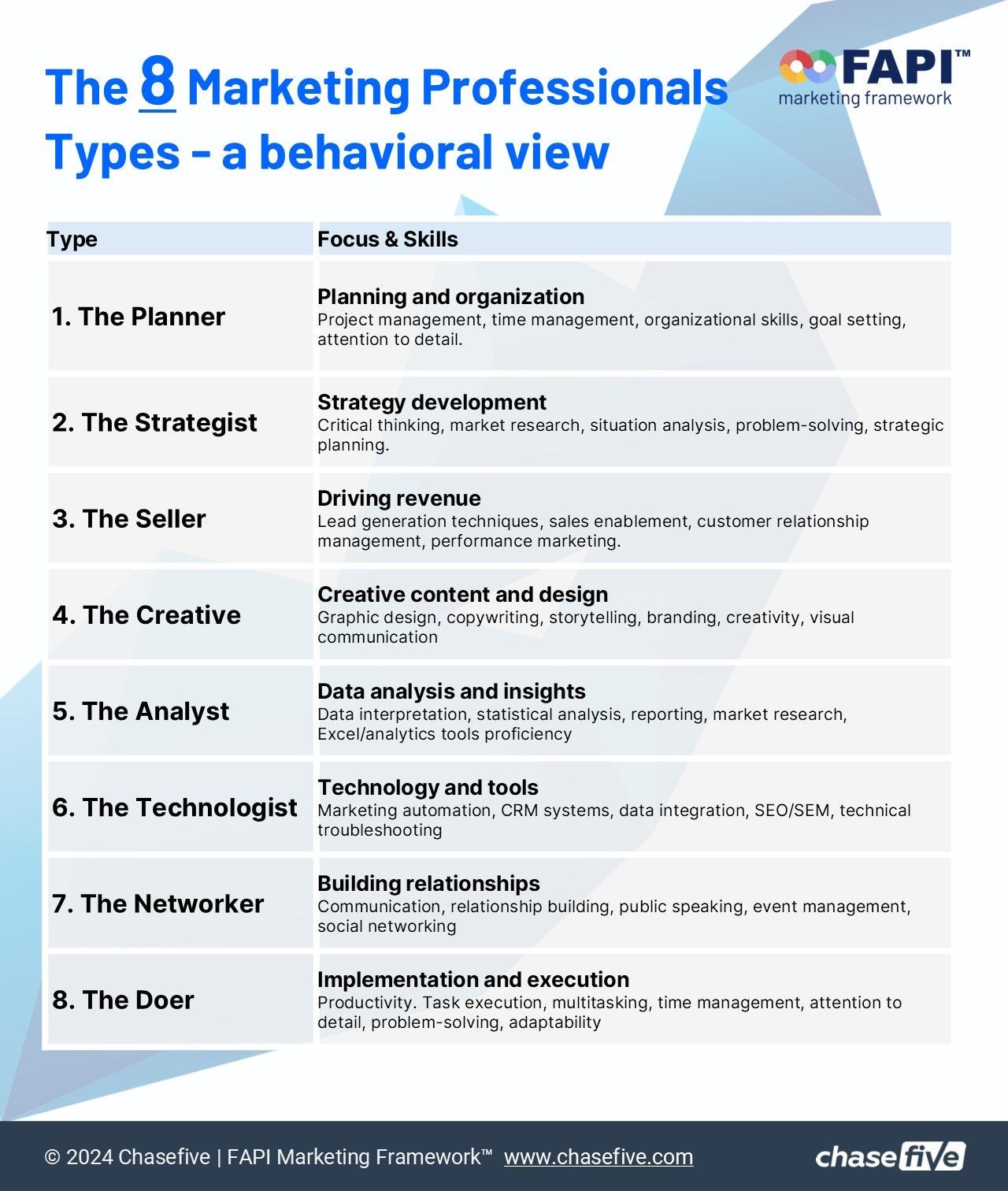
The behavioral view: 8 types of marketing professionals
Each marketing professional represents more than just a set of skills; they embody specific personality traits and work styles that influence how they approach their roles:
- The Planner: Organized, detail-oriented, and methodical. Their natural ability to structure and manage projects ensures that all marketing initiatives stay on track.
- The Strategist: Analytical and visionary. They thrive on developing long-term plans and making data-driven decisions, helping the team think ahead and stay competitive.
- The Seller: Persuasive and target-driven. With a focus on results, they bring high energy to turning leads into revenue, playing a key role in driving sales and customer acquisition.
- The Creative: Imaginative and innovative. Their ability to think outside the box allows them to bring fresh ideas to life through compelling content and design.
- The Analyst: Logical and data-focused. Their deep interest in metrics and data interpretation helps guide strategic adjustments, ensuring the team makes informed decisions.
- The Technologist: Curious and tech-savvy. They are quick to learn new tools and enjoy solving technical challenges, ensuring marketing systems run smoothly.
- The Networker: Social and charismatic. With a strong knack for building relationships and connections, they are crucial for partnerships, influencer marketing, and public engagement.
- The Doer: Practical and results-oriented. Known for their hands-on approach, they thrive in fast-paced environments, making sure the team stays productive and delivers on its promises.
Beyond skills: Personality drives success
A determining factor factor in the success of marketing functions is recognizing that these are not just competency areas but also personality types. A marketing professional’s behavior, work style, and interactions with the team can have as much impact on their effectiveness as their technical abilities.
For example:
- A Planner’s attention to detail is critical for managing complex campaigns, while their methodical nature ensures nothing slips through the cracks.
- A Creative’s imaginative mindset keeps the marketing fresh and engaging, with their personality naturally fostering innovation.
- A Seller, driven by results, brings an assertive personality that pushes the team to meet revenue goals.
Understanding these behavioral traits helps businesses create more cohesive and productive teams by ensuring the right personality is matched with the right marketing challenge.
The Architecture Module within the FAPI Marketing Framework is designed to help businesses navigate this essential alignment of both skills and personality types. It aids in resource planning by helping leaders determine:
- Which personality-driven professionals are best suited to fulfill the needs of their marketing strategy.
- How to balance different personality types, ensuring a harmonious and efficient marketing team that covers all bases.
- How to identify gaps in both skill sets and work styles, allowing businesses to hire more effectively and avoid bottlenecks caused by mismatched roles.
Why skills and personality alignment matters
Without a proper understanding of personality types and how they influence marketing roles, even the most skilled professionals might struggle to perform at their best. For example, hiring someone with an analytical personality like The Analyst type for a relationship-driven role like (The Networker) could lead to misalignment and inefficiency. Conversely, putting a Creative into a rigid, detail-heavy role without giving them space to innovate might stifle their potential.
By leveraging the Architecture Module in the FAPI Marketing Framework, businesses can ensure they have the right combination of both skills and personality types, fostering a more dynamic and productive marketing team. This strategic approach to team building ensures that marketing professionals not only excel in their roles but also complement the overall team dynamic.
In modern marketing, success depends on much more than just having the right skills—it requires assembling a team whose personality types align with their roles and the overall marketing strategy. Understanding the behavioral traits that define each type of marketing professional is key to building an effective team. With the FAPI Marketing Framework’s Architecture Module, businesses can plan their resources more effectively, ensuring they hire the right people for the right roles. This alignment of skills and personality types is critical to driving marketing success and delivering results that align with business goals.
Register free on the FAPI Marketing Framework Academy Portal to explore the FAPI Marketing Framework
